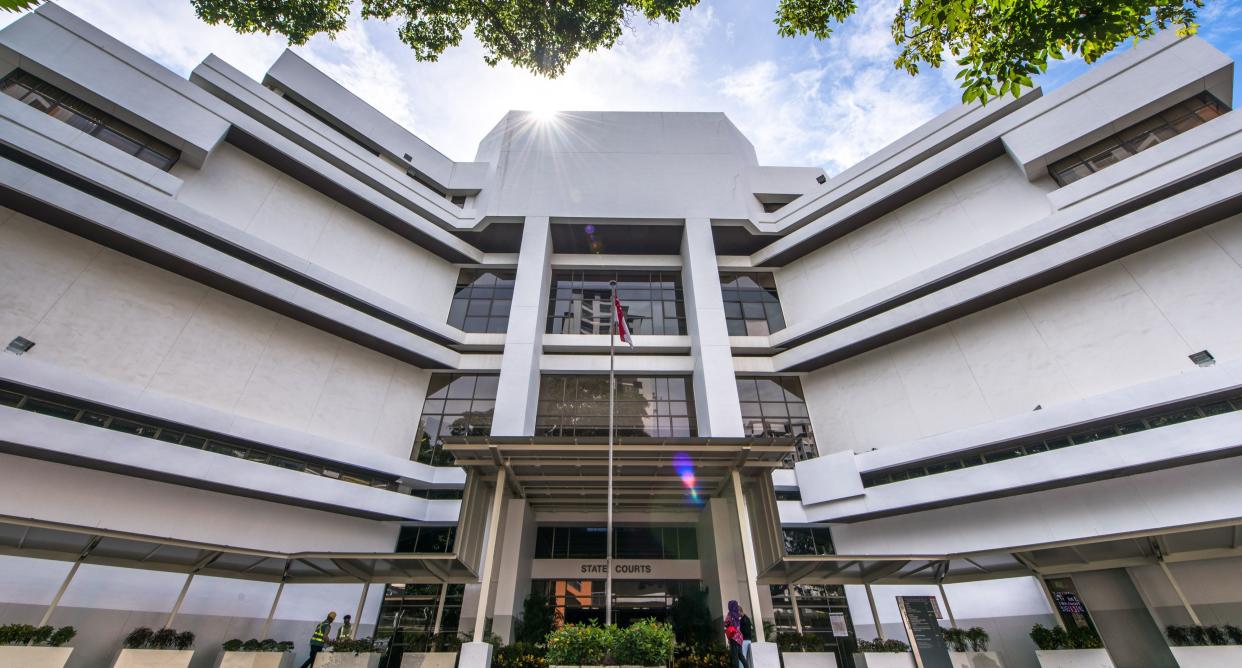Construction surveyor turned full-time loanshark for foreign workers jailed, fined

A construction surveyor working in Singapore who wanted to make an extra buck started lending money illegally to Thai and Indian construction workers in 2006, a district court heard.
So lucrative was the side gig that Looi Teck Hock, who earned $2,500 to $3,500 a month from his day job, could afford to buy an executive condominium with his wife in 2011.
The one-man criminal enterprise expanded so much that by the time he was retrenched in 2015, he needn’t find another job as he was comfortably making about $3,000 to $4,000 a month from his unlawful activities.
Looi’s crimes finally came to a halt after 11 years, when policemen who stopped him for a spot check at an MRT station in August 2017 found several ATM cards belonging to foreign workers on him.
At the State Courts on Wednesday (20 February), Looi was jailed for three-and-a-half years and fined $450,000.
The 47-year-old permanent resident from Malaysia pleaded guilty to 15 out of 122 charges under the Moneylenders Act. The remaining counts were considered in his sentencing.
In meting out his sentence, District Judge Marvin Bay said, “Looi cynically exploited a vulnerable class of persons, namely construction workers, who would not have the knowledge to understand their rights, and limited wherewithal to obtain credit.”
Added the judge, “Given that we are, as a country, responsible for the workers who have been invited to work on our shores, it is incumbent on our part to protect these foreign workers from all manner of harm, including their wanton exploitation by illegal moneylenders.”
Debtors’ ATM cards taken until repayment
Looi, who worked with Woh Hup from 2003 to 2015, would charge 10 per cent interest per month until the principal loan amount was cleared. In comparison, the maximum interest rate mandated for licensed moneylenders is 4 per cent.
As a condition of his loans, he made debtors hand over their ATM cards and PIN numbers. Since the salaries of these workers would be credited into their bank accounts, Looi could withdraw the monthly repayment amounts whenever they received salaries from their companies. He would then pass the debtors the rest of their salaries.
Looi would only return the debtors’ ATM cards when their loans were repaid.
For newer debtors whom he did not recognise, he required them to obtain a guarantor among his existing debtors.
Through word of mouth, Looi grew his illegal business. In all, Looi extended loans ranging between $200 and $3,000 to at least 83 debtors.
He spent the profits on personal and family expenses, such as repaying the loan on his Punggol executive condominium, RiverParc Residence, which he bought with his wife in 2011. She was able to stop working in 2015, the same year that he was retrenched, as his illegal business was doing well.
Judge Bay agreed with the prosecution on the need for a deterrent sentence.
He said, “Looi’s imposition of exorbitant, even extortionate interest, on their relatively modest sums extended, would keep these migrant workers in an extended state of penury and desperation.”
Other Singapore stories:
Man admits to using fake documents to apply for Singapore citizenship for surrogate twin boys
Man sentenced to jail and caning for trying to enter Singapore illegally on sampan
Man caught with contraband cigarettes stuffed in loaf of bread at Woodlands Checkpoint
COMMENT: Budget 2019 is unimaginative and all-too familiar
Grab launches service for passengers to ride with their pets



